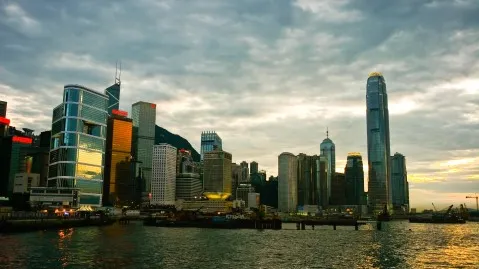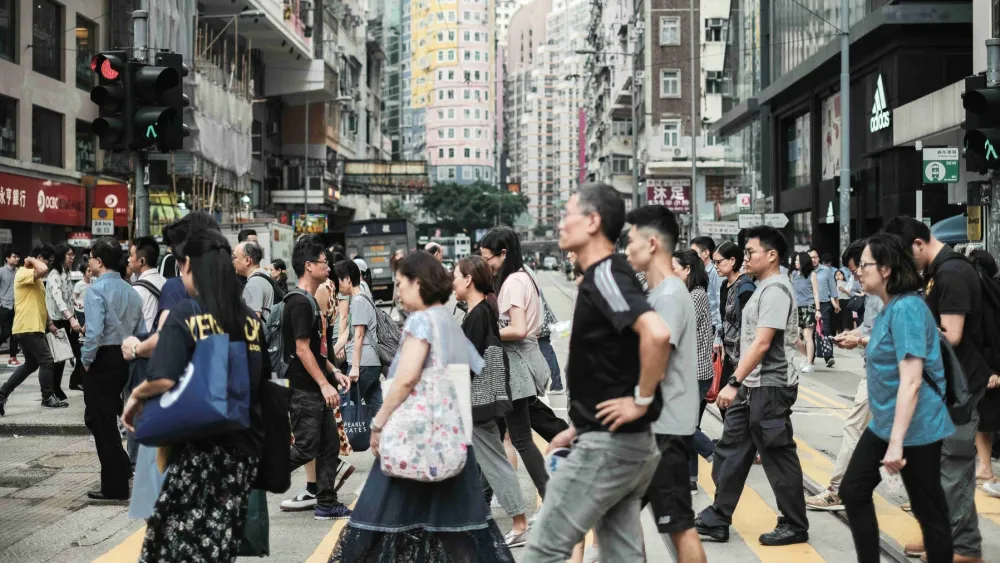
Marketing Briefing: 'Go-local' trend rises as pandemic drags on
41% of Hong Kong consumers support local businesses.
With the prolonged mobility restrictions due to the pandemic, consumers in Hong Kong are opting to buy local products or travel domestically, according to PwC’s latest Global Consumer Insights Pulse Survey.
An average of 51% of consumers globally—41% in Hong Kong—in the survey were actively more supporting local independent businesses and were buying from local independent retailers in the past six months, according to the June survey.
The global average is higher than the 45% who said they are doing more to support local businesses and 46% saying they were buying more from local independent retailers in March.
The survey also found that 43% of the consumers globally and 36% in Hong Kong have evolved to be more local in their spending patterns in the past six months.
“Whilst much of the ‘go-local’ trend can be explained by restricted travel and mobility amidst the COVID-19 pandemic, the public sector’s support for the local economy and rising cultural sentiment towards domestic brands also accelerated such trend,” Michael Cheng, Asia Pacific, Mainland China, and Hong Kong Consumer Markets Leader for PwC, said.
Cheng noted that in Hong Kong, the government launched a consumption voucher program to encourage the public to spend in the local retail, catering, and services sector in a bid to support local businesses and employment.
In China, there is also a nationwide trend to embrace domestic brands, called Guo Chao, which has driven the popularity of local consumer names, he said.
Cheng said that it is important for brands to be “locally sensitive and culturally relevant.”
“They need to understand and respond to an audience in a way that they can relate to. This can be done by having greater sensitivity on current events and cultural happenings that matter to local consumers, promoting and supporting social and environmental causes, whilst remaining true to their brand image and relevance to their demographic,” he said.
The survey has also found that global consumers are still conservative about future spending, but there is a disparity across the Asia Pacific, with 59% of Singaporean consumers and 46% of Hong Kong respondents said they are “price-oriented” in the past six months, compared to 39% from Mainland China.
The consumer markets leader also noted that 59% of Singapore respondents and 61% of Hong Kong respondents have said that they are more focused on saving, whilst only 39%% of those in Mainland China have answered the same.
Cheng said Mainland China’s consumers were less price-sensitive due to the country’s strong economic recovery and largely resumed mobility, making them look “beyond the price tags to focus more on non-price attributes such as quality, convenience, and experience.”
More sustainable consumers
Cheng also said that Asia Pacific consumers also prefer to buy items with eco-friendly packaging or less packaging, choose products with a traceable or transparent origin and shop with companies that are conscious and supportive of protecting the environment.
He said that sustainability-based consumption along with embracing environmental, social, and governance (ESG) initiatives is a “huge opportunity for value creation.”
“Whilst more regulations to spur stronger actions on ESG issues are possible, companies will have to embed ESG goals and ideals into the corporate culture and daily operating activities. Retailers should strategically invest in sustainability and ESG actions where every decision and action is viewed through an ESG lens,” he said.
The survey found that 50% of consumers globally say they are more eco-friendly but it is 86% in Indonesia, 74% in Vietnam and the Philippines, and 67% in the United Arab Emirates.
PwC, however, said that whilst consumers are showing an increased interest in sustainability, companies and retailers should not “overestimate” the “green wave” as there are still many others who are not, adding that Gen Zs were aspirational about eco-friendly behaviours but they do not often translate into spending.
It said that as companies continue to make sustainable choices more affordable and practical, “consumers increasingly will turn aspiration into action.”
Meanwhile, Cheng also said increased digitisation is also evident in the Asia Pacific based on the survey, with 47% saying they bought products through mobile phones on a weekly or daily basis in the last 12 months and 31% did the same through computers.
Cheng said that consumption post-pandemic will feature both online and offline settings, offering a “seamless omnichannel experience for shoppers.”
“Over the medium-to-long term, physical stores are here to stay and thrive in tandem with e-commerce and mobile commerce. In fact, the store of the future will evolve to feature attributes that are most valued and demanded by consumers,” he said.
“Looking forward, physical stores will need to provide consumers with experiences and interactions to stay relevant, as opposed to selling products alone. Brands who will survive the post-pandemic environment will be those with a robust online presence and relevant physical setups that revolve around experience,” he added.



















 Advertise
Advertise










